
Artificial insemination is a routine practice in the turkey breeder industry. To be successful it requires more than just raising high quality birds. Limiting stress when handling by having trained, competent staff and good animal welfare standards is key.
Experienced AI crew
It is important to only use properly trained and experienced injectors, especially during the first inseminations. The insemination crew should be trained to handle the birds as gently and securely as possible. Proper handling will contribute to increased semen yield, improved fertility, and overall make the job easier while reducing the risk of injury to the birds and farm laborers.
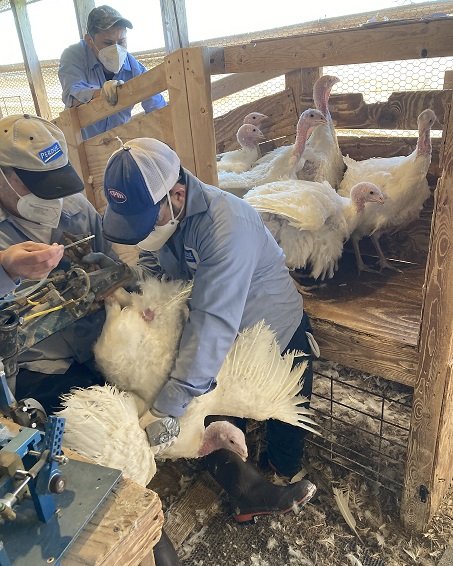
Experienced crew with hen using an AI chair
Different techniques and equipment are used but the basic procedures are common to all approaches. At all times, attention must be paid to the welfare of the bird, the safety of the operator, and high standards of hygiene.
Male Handling
There are many ways to handle male breeders while practicing good welfare standards. The single person technique uses kneeling benches and has become common. This method only requires one experienced milker, which is beneficial when faced with labor shortages.
The two-person technique requires an ‘operator’ and a ‘milker’. The ‘operator’ holds the bird’s legs and operates the semen collection apparatus. The ‘milker’ is in charge of stimulation. Those crew members in charge of milking need to exercise extreme care in this role to ensure the birds do not get injured and go out of production. To avoid any pinching or cuts to the males when milking, it is recommended that all AI crew members maintain short nails. The ‘milker’ must also take extra care during aspirations and use no more than two strokes. After two strokes, the risk of injury to the cloacal area increases, with minimal additional semen being gained.
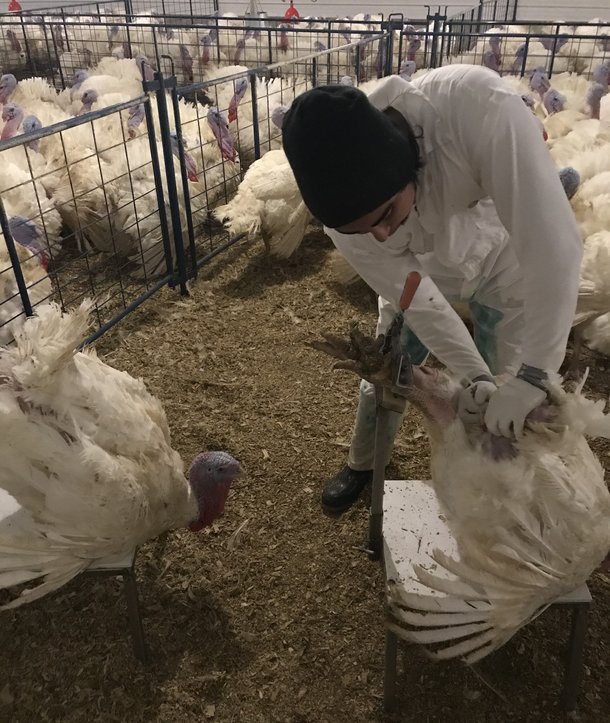
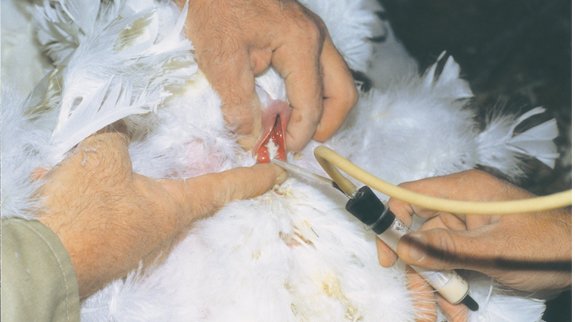
It is important to work with the bird, not against the bird. Proper density and handling will ensure the males achieve maximum quality and quantity of semen to aid in the production of viable, fertile eggs.
Female Handling
Different systems are available for working with female breeders including; standing methods, automatic AI chairs, ramps, and pit systems. Each system has its own operating protocol that takes animal welfare, operator safety, and hygiene into consideration. Regardless of the system used, all females should be secured by both legs and handled gently to avoid any harm or added stress.
During insemination, the AI crew should be careful not to insert the tube too deep into the oviduct as it can cause internal harm. If the hymen (white bubble) is intact, do not force the insemination tube into the bird as this can cause wounds and infection. Do not attempt to puncture the hymen. If ‘tight’ females are encountered, this may indicate that the female is not ready for insemination, or that they are going broody. Do not force insemination as this may lead to damage of the oviduct.
Overcrowding causes injury and added stress. When female breeders are walking the chute or waiting for their turn in a holding pen, ensure they are not overcrowded. Overcrowding causes the birds to pile up and injure each other.
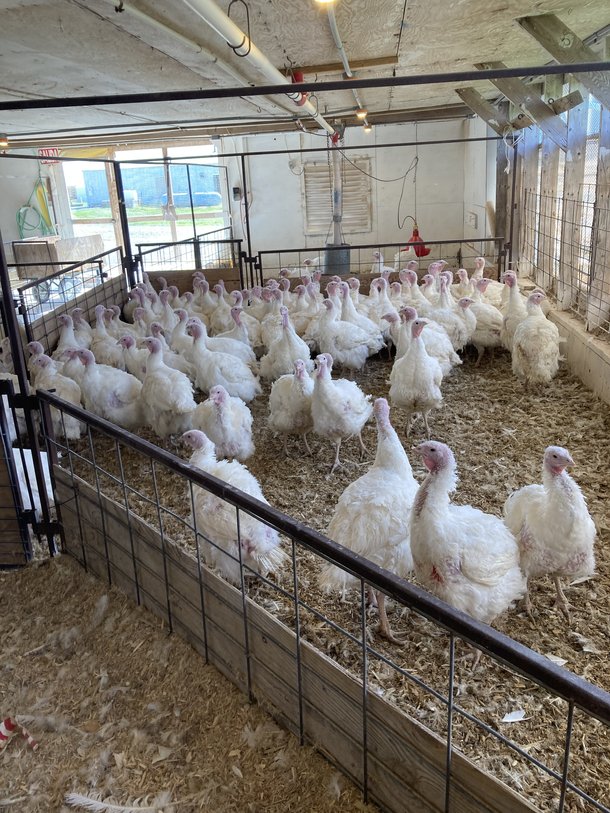
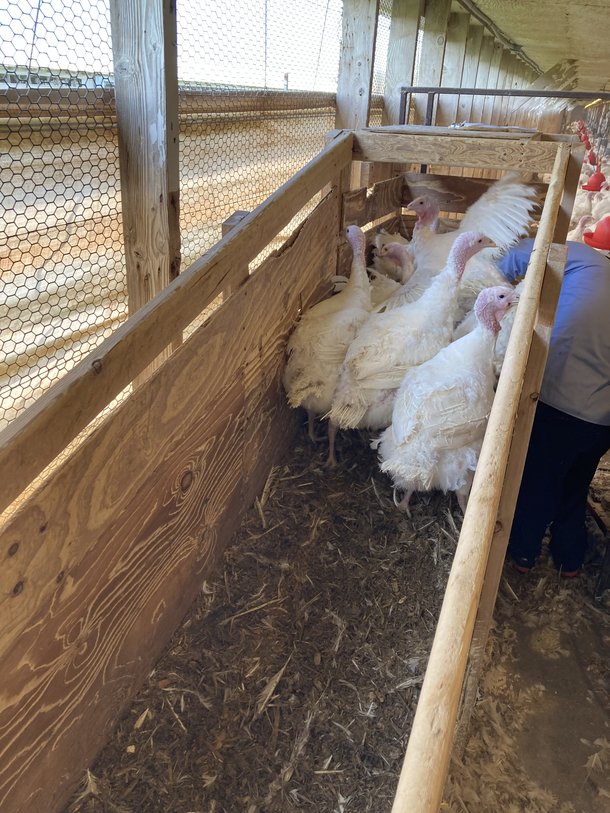
Regulations on systems and processes differ by region. This article presents the many systems used in the global industry and local regulations should always be checked to ensure the best local practices are being followed.
Hybrid Turkeys continuously looks for ways to improve the overall health and well-being of turkeys, not only under our care, but within the entire industry. We are committed to practicing proper turkey welfare that includes animal treatment, safe bird handling and overall turkey health. For more information or customized recommendations on breeder management resources please reach out to a member of our Hybrid Turkeys Technical Service Team.








